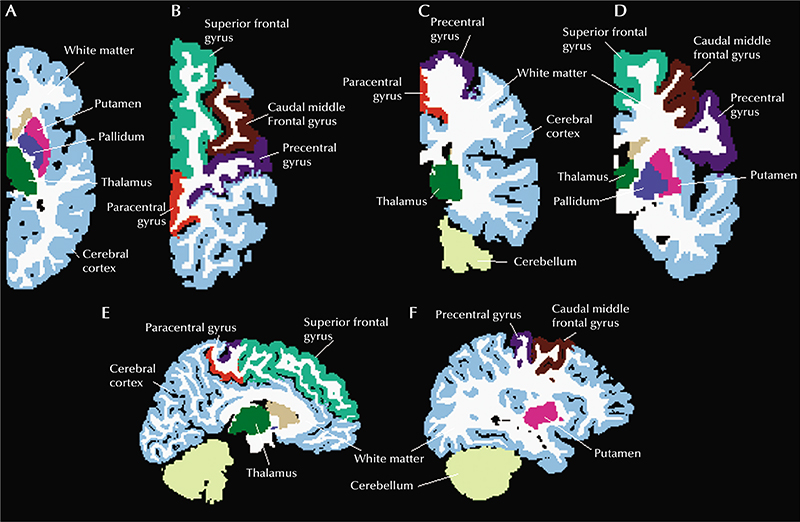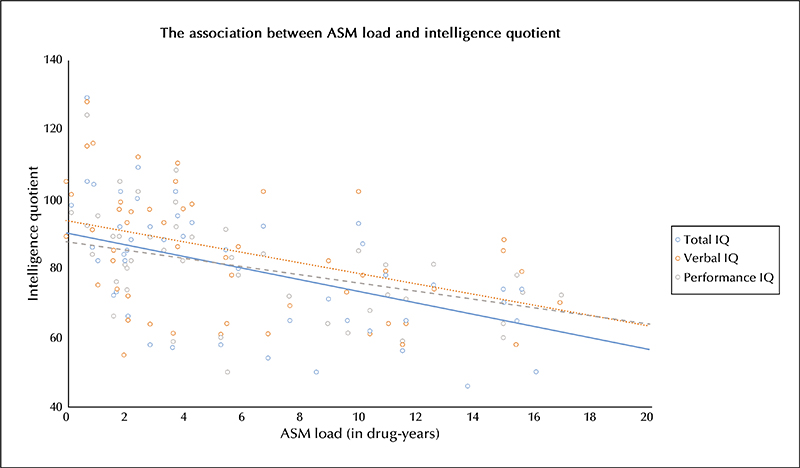Epileptic Disorders
MENUCumulative effects of antiseizure medication on intelligence in children with focal epilepsy Volume 24, issue 5, October 2022
- Key words: cognition, intelligence quotient, neurodevelopment, structural, connectivity
- DOI : 10.1684/epd.2022.1467
- Page(s) : 877-88
- Published in: 2022
Objective
Antiseizure medication may have long-term effects on the neurodevelopment of children. We aimed to investigate the association between cumulative antiseizure medication load and intelligence quotient (IQ) in relation to brain volume and cortical thickness.
Methods
A retrospective analysis of children with focal epilepsy who underwent neuropsychological assessment and MRI between the ages of 5-12 years in a tertiary epilepsy centre was performed. Cumulative medication load was presented in medication-years. We studied the association between total medication load and IQ with multivariable linear regression, corrected for epilepsy-related confounders: age at first treatment, aetiology, maximum seizure frequency, duration of active epilepsy, history of secondary generalized seizures, history of status epilepticus, and the number of antiseizure medications used at time of neuropsychological assessment.
Results
We included 59 children. Median medication load was 5.3 medication-years (interquartile range: 2.0 – 11.1) and mean total IQ (± standard deviation) was 77.4±18.9. A significant negative relation between medication load and total IQ was found with a decrease of 1.2 IQ-points per medication-year (95% confidence interval: -2.0 to -0.3) after correcting for confounders. Medication load and IQ were both not significantly associated with brain volume or cortical thickness.
Significance
Higher cumulative medication load is associated with lower total IQ after adjusting for epilepsy-related confounders. We found no evidence to support the hypothesis that the medication-related IQ decrease was mediated by volumetric brain changes. However, these results should be interpreted with caution, and prospective, longitudinal confirmation of these findings is required. Lastly, it should be stressed that effective seizure prevention often outweighs the potential negative effects of antiseizure medication.



